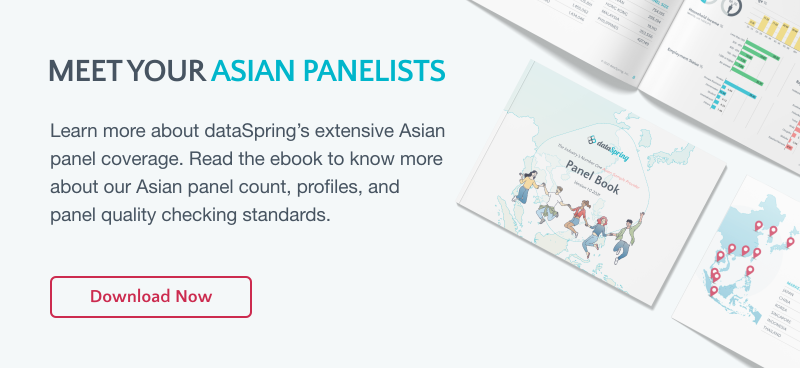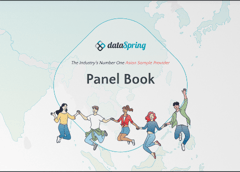Mother’s Day is more than a calendar date. It’s a pause in our busy lives—a moment to look back, to be grateful, and to celebrate the women who hold our families together. Across Asia, this day becomes even more meaningful, where motherhood is not just a role but a sacred bond deeply rooted in tradition, sacrifice, and cultural pride.
From the callused hands of a Filipino Nanay who prepares breakfast before dawn to the gentle strength of a Japanese Okāsan quietly managing everything from meals to manners, Asian moms carry their families with grace. This blog is a tribute to their resilience, their unspoken wisdom, and the powerful legacy they leave behind.
The Heartbeat of the Home: The Role of Asian Mothers
In many Asian societies, mothers are more than caregivers. They are the family’s emotional anchors and moral compass. In countries like India, the Philippines, and South Korea, mothers don’t just nurture—they shape identities, uphold traditions, and instill lifelong values.
In the Philippines, Mother’s Day is vibrant and personal. Families gather after mass, kids sing songs or write poems, and even small handmade tokens are cherished. A simple “I love you, Ma” over a family lunch can mean the world.
In China, respect for mothers is often expressed through elegant gestures—offering tea, writing calligraphy, or gifting jade jewelry, which symbolizes purity and protection. Each act, though simple, is imbued with deep meaning and generational reverence.
A Cultural Mosaic: How Asia Celebrates Mom
Though Mother’s Day is a Western import in some parts of Asia, many countries have embraced and infused it with their own unique flavor:
- Japan: Celebrated as Haha no Hi, children gift red carnations—a flower that symbolizes a mother's gentle strength. Homemade meals and family portraits are common tributes.
- India: While not traditionally observed, urban families now celebrate by cooking favorite dishes for their mothers or giving personalized handmade gifts.
- South Korea: Known as Parents’ Day (Eorininal), children express their gratitude by offering carnations and performing chores—an act of love that transcends words.
- Vietnam: Known for its strong matriarchal influence, many families express their appreciation through songs, poetry, and traditional delicacies.

What Asian Moms Truly Appreciate
Understanding what moms cherish most can help us give gifts that truly resonate. According to regional surveys:
- 29% of Asian moms say personalized items like photo albums or jewelry engraved with their children’s names are most meaningful.
- 28% prefer handmade gifts—proof that thoughtfulness trumps price tags.
- 38% would rather be treated to a meal or experience than receive a physical gift.
Additionally, Asian moms are embracing gifts that enhance self-care or honor cultural heritage:
- Beauty and Wellness: Skincare rooted in traditional ingredients like ginseng, pearl powder, or green tea is especially popular.
- Cultural Keepsakes: Tea sets, silk scarves, or even calligraphy art make heartfelt and culturally relevant gifts.
- Kitchen Tools: Practical and symbolic, culinary tools like high-end rice cookers or handmade ceramic dishes often hold sentimental value.
Regional Insights: The Diversity of Motherhood Across Asia
1. Shopping Habits: Price vs. Convenience
- Japanese moms are twice as likely as their Asian counterparts to value convenience in online shopping. Their priorities include ease of bulk purchases and a streamlined checkout experience.
- Filipino moms, by contrast, are more deal-conscious. They often compare prices less extensively before purchasing, opting instead for affordability and trusted brands.
2. Online parenting content may supplement or replace doctor’s orders
- 63% of Asian moms read online content about pediatric health.
- Only 42% rely primarily on healthcare professionals for childcare advice.
- 70% of Asian moms browse parenting websites and articles.
- Taiwanese moms show the highest reliance on online content at 91%, compared to 69% among other Asian moms.
3. Working moms in Singapore seek to balance career with family
- 54% of Singaporean moms have full-time jobs — the highest among Asian moms.
- 42% of them struggle to balance career and personal life.
- Working full-time while raising children is a significant challenge for many Asian moms.
The rise in working Asian mothers highlights the need for more support from society and brands.
4. Malaysian moms are the most likely to follow famtech brands on social media
- Malaysian moms are early adopters of family tech (famtech) products.
- Nearly 1 in 2 Malaysian moms follow famtech brands on social media.
- 39% already use smart breastfeeding devices.
Famtech offers clear benefits, promoting freedom and self-care in motherhood.
5. Chinese Moms: Economic Powerhouses
Chinese mothers are perhaps among the world’s most influential consumers:
- They contribute to 50% of the household income.
- 75% say they manage or control family spending—ranging from groceries to large investments.
- In some households, wives even control the bank accounts, giving cash allowances to their husbands.
- This financial influence makes them key decision-makers not just in the home but in the consumer economy at large.
6. Digital Habits and Parenting Content
Asian moms are always learning:
- 76% browse parenting-related content online.
- 53% of Filipino moms enjoy reading educational tips, often using social media, blogs, or medical sites.
Aside from parenting, moms spend time online reading product reviews, watching how-to videos, and connecting with fellow parents—seeking both knowledge and reassurance that they’re doing a good job.
6. Desire for a Second Child Among Hong Kong Mothers
- Only 31% of first-time Hong Kong mothers (ages 18–45) want a second child.
- Main reasons for reluctance:
-
- Financial burden
- Parenting stress
- Limited living space
- Work–childcare balance challenges
- A charity has called for:
- Expanded subsidized daycare services
- More family-friendly workplace policies
6. Digital Engagement in Child Feeding Practices
- 70% of Thai mothers use social media for child feeding information.
- First-time millennial moms are the most active participants.
Many join online support groups focused on child feeding.

A Mother’s Legacy
Our mothers may not always say much about their sacrifices. But we see it in the way they stay up when we’re sick, how they listen when we’re lost, and how they give without asking for anything in return. Asian motherhood is quiet strength—steady, patient, and powerful beyond measure.
Mother’s Day isn’t just a celebration. It’s a thank you, a love letter, and a warm embrace wrapped into one. Whether you're gifting a handmade card or simply spending time over a shared meal, what matters most is that she feels seen, valued, and deeply loved.
Happy Mother’s Day to every Asian mom whose love bridges generations, whose wisdom lights the way, and whose heart holds the home together.
Looking for more insights across Asia? This Mother's Day, as we honor the women who nurture generations, take a deeper look at the shifting family landscape in Declining Birthrate in South Korea: A Look at People's Perceptions and Policy Impacts or explore how modern moms are shopping smarter with How Shopee Became the Top eCommerce Marketplace in Southeast Asia. All this and more—only on Eye On Asia. Stay tuned for our next feature!✨



 Download Panel Book
Download Panel Book


